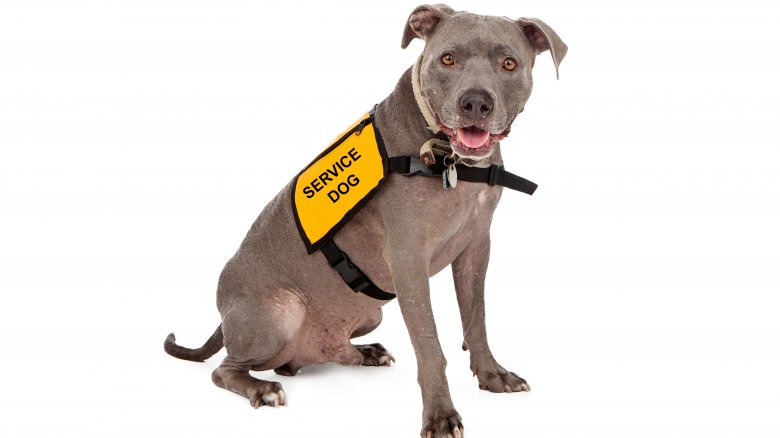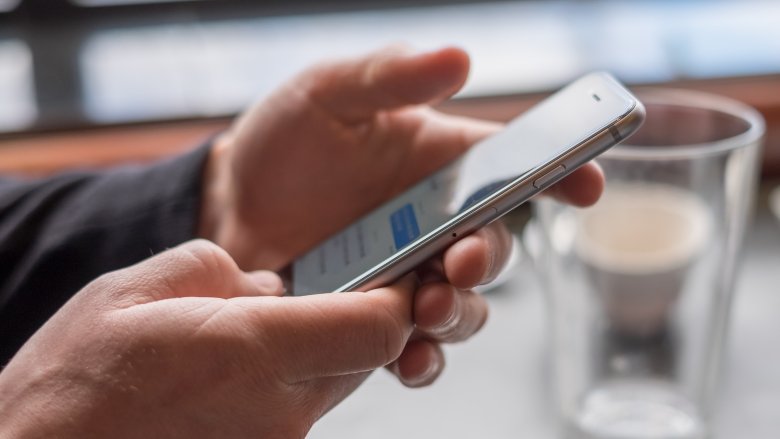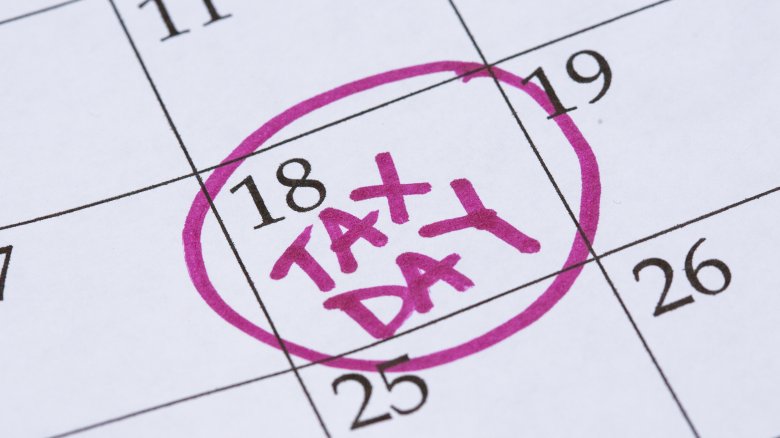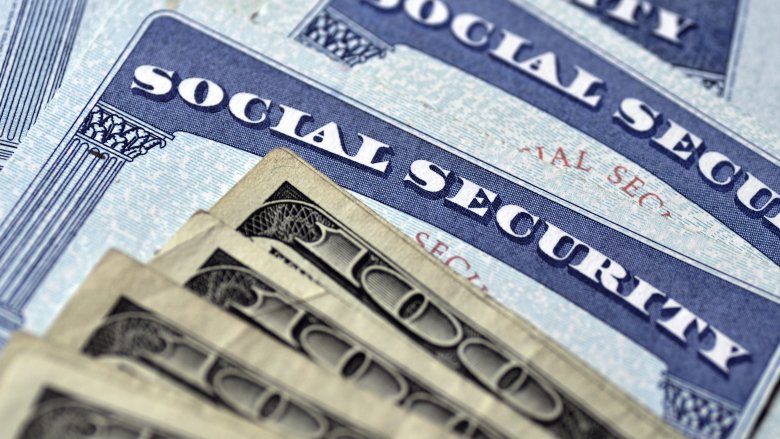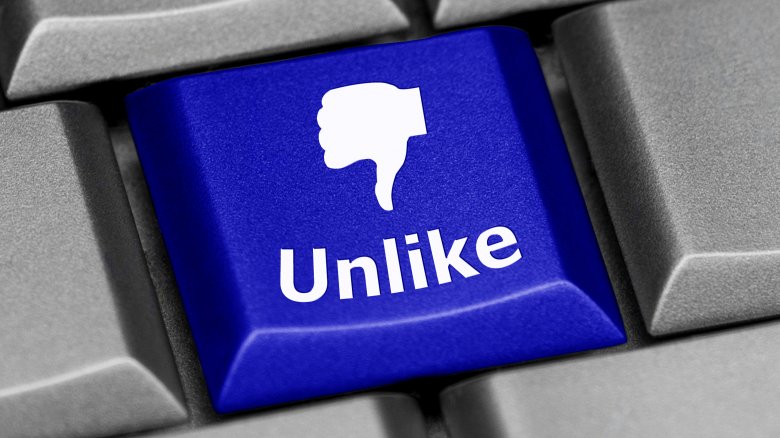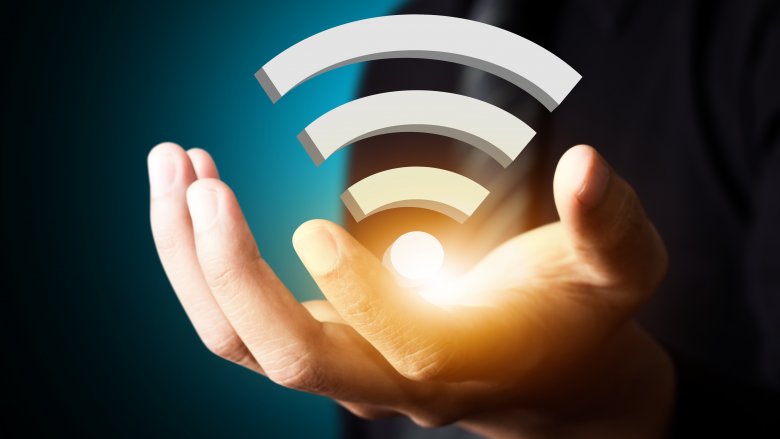11 Ways Criminals Secretly Trick You
Anyone who claims crime doesn't pay probably sucks at lawbreaking. Deft degenerates make a killing on the innocent, and not just by killing them. Many make a living by lying, relying on your trust to line their pockets. Much like Foucault, crooks know that knowledge is power. Once you learn some of the dastardly deceptions they employ, you'll think their bad-guy brains are on steroids.
Food fraudsters feed you lies
People don't question certain things. If you order chocolate mousse at a restaurant, you don't expect blended Bullwinkle topped with cocoa powder. When you purchase peanut butter, you never worry that it's really peas and butter. That's because, in theory, the days of Upton Sinclair's meat jungle are over. Society now has rigid restrictions to prevent gourmet chicanery. Yet, according to The Atlantic, up to 10 percent of grocery products are faker than a foam toupee. CNBC painted a grosser picture of restaurants after consulting an expert who likened them to a regulatory "Wild West."
As a result, people blow tens of billions of dollars worldwide on food knockoffs, some of which prove deadly. This isn't just a case of slightly shady businessmen pushing legal boundaries. Actual mobsters and smugglers flood the market (and your supermarkets) with everything from bogus beef to sawdust-tainted coffee. You could literally bite the dust while gangsters feed their greed. Remember that 2013 horsemeat burger scandal in the U.K.? A government report summarized by The Guardian blamed organized crime.
You might feel forced to stomach this situation. After all, packaging and pesky rules about shoplifting make it hard to inspect store-bought foods before you buy them, and you can't exactly raid a restaurant to check if the fish is fishy. But you're not totally helpless. You can eschew processed foods at grocery stores, and at restaurants you can ask for specifics about menu items while quietly praying your waiter's honest.
Phony service dogs do a disservice to real ones
From detecting cancer to driving cars, dogs can do it all. But not all dogs should. Some pooches possess the right temperament for helping the disabled, for example, while others need muzzles just to sniff their own backsides. Unfortunately, certain breeds of dog owner like to dress untrained, ill-tempered canines as service animals to sneak them into otherwise prohibited places.
The ruse relies on a portion of the Americans with Disabilities Act that requires businesses to permit service dogs on their premises. A blithering buttface looking to exploit this can buy an authentic-looking dog vest, certificate, and ID online. News outlet KESQ in California noted that business owners face fines and lawsuits for refusing service dogs, making them hesitant to pursue fakes. This basically gives a buttface free rein to enter any store, restaurant, or government building with a yipping bull-Shih Tzu in tow.
This dog trickery not only flouts the law, but harms businesses and the disabled. The Daily Beast recounted the real-life example of a four-legged phony that viciously mauled a quadriplegic woman's canine helper. These kinds of attacks aren't uncommon. Moreover, faux service animals poop and pee their way through stores. NPR shed additional light on the negative effects, observing that concern over dodgy dogs has cast suspicion on people who legitimately need service animals. In effect, it's made the world less accessible to people who actually need help accessing it.
Prepaid funeral fraud can kill your wallet
To paraphrase the immortal Ben Franklin, you're definitely going to die and the government will totally take your money. However, Frankie boy forgot to mention that death itself will tax your finances. According to the National Funeral Directors' Association, the median cost for a funeral in 2014 was $7,181. And that just accounted for bare-bones services like embalming and burial. Once you start tossing in accessories like flowers, headstones, and reception hors d'oeuvres, the price balloons. To avoid suffocating in debt, many families embrace funeral prepayment plans. Sadly, this is something criminals also plan for.
As with any industry, fraudsters in the funeral industry look for various ways to turn your loss into their gain. In 2014, for example, the Cleveland Plain Dealer reported that six Ohioan funeral directors had been axed over a two-year period for stealing customers' prepayments. In some cases, they reaped hundreds of thousands of dollars, some of which hopefully went toward purchasing a conscience.
Some cases boil down to inconsistent regulations, according to the FBI. In certain states, legal protections are paper-thin. Missouri-based National Prearranged Services made $450 million shamelessly preying on nuns, the elderly, and the disabled. By forging documents and simply lying to lawmakers, they hid the systematic fleecing of 97,000 clients whose money went to unauthorized investments and other prohibited purchases. How that failed to provoke nonstop trolling by vengeful poltergeists remains a mystery.
Scammers send phones phony texts
The smartphone-ification of society has fundamentally altered how monetary transactions happen. Now instead of waltzing into a bank or foxtrotting through Walmart, many people do the iPhone shuffle to manage funds and buy things. And as USA Today pointed out, in some countries, smartphones have become people's main means of getting online. This has caused some scammers to embrace the art of smishing.
Smishing may sound like a term for sloppy, off-target smooching, but in reality the only lip action comes when you kiss your money goodbye. That's because it's actually a text-based phishing scam premised on impersonating a victim's bank or a frequently used retailer. Criminals invent a pretext to text targets in hopes that some poor soul will divulge sensitive financial info. And because people generally trust texts, they're sometimes inclined to oblige.
Worse yet, smishing attempts can show boggling levels of sophistication. Wales resident Claire Pearson, for instance, received a bogus message bearing her bank's actual phone number. Pearson explained to Wales Online that the text told her that someone had made shady purchases in her name, listed specific charges, and included a phone number for assistance. Swayed by the cloned phone number, Pearson unwittingly handed over the keys to her cash castle. It ended up costing her over £71,000 that she most likely won't get back. Frighteningly, in the age of digital wrongdoing, even your contacts list lies to you.
Some tax preparers will readily falsify your taxes
Most people have a hate-hate relationship with taxes. Sure, taxes build roads and educate children, but figuring them out feels like taking your brain to the dentist to get its sanity pulled. Citing findings by the IRS, in 2017, NBC reported that roughly 60 percent of all U.S. taxes are filed by paid preparers. This doesn't stem from pure laziness but the fact that America's ever-changing tax code practically needs its own Rosetta stone.
Unfortunately, this creates a huge incentive for unscrupulous actors to scrutinize your finances. Seemingly honest number-crunchers will seize the opportunity to falsify taxes in your name. CNN has cited instances of preparers fabricating children to increase tax deductions, falsifying signatures on fraudulent filings, and flat-out impersonating their clients to get their mitts on undue tax refunds. In other cases, preparers will convince customers to fib their pants off and then charge them extra to profit on the deceit.
Filers flagged for tax fraud must repay the government, hoodwinked or not. You might have been duped by a number-savvy nun who runs an orphanage, but you'd still be punished for believing her. Worse yet, good preparers don't have halos floating over their heads, and bad ones have little trouble entering the biz. The National Consumer Law Center reportedly identified 46 states where tax preparers face fewer regulations than hairdressers. Granted, a bad hairdo will ruin your day, but possible financial ruin is a far hairier problem.
Routing number schemes may reroute your personal info
People often cringe at the use of deus ex machina in movies and television because it ruins realism, but boy, would they love that plot device to affect their real lives. Innumerable individuals fall for get-rich-quick schemes and allegedly hassle-free diet fads because they feel like miraculous problem-solvers dropped from the sky. So it makes complete sense that someone swimming in debt or looking for a way to wipe away bills would want to believe in a secret cache of cash they can use to pay it all off. Much like a lard brownie that burns fat, that money is utter malarkey.
Torturing the truth is fraudster foreplay, which is why some will try to play you with a routing numbers scam. According to USA Today, the ploy works by convincing you that the U.S. government clandestinely holds money you can use to pay your bills. Using YouTube videos and shady seminars, false financial prophets preach that to profit from this "wisdom," a person need only pair a special Federal Reserve routing number with their Social Security number and start making payments.
In 2017, power companies spotted over 1,000 instances of people trying to pay their utility bills using this imaginary and legally impossible method. Obviously, this screws folks financially with late fees incurred for technically unpaid bills, but WRIC highlighted a worse effect. By putting their Social Security numbers out there, people create an avenue for identity theft. It's a devastating double-whammy.
Conmen bank on phony bank fraud
Let's say an alleged representative from your bank calls to inform you that someone used your credit card to buy gadgets you don't own plus a DVD copy of Butt Sniffers 2. The purchases are entirely ginned up, but you're too drunk with fear to suspect it. The only way to save the rest of your hard- (or hardly) earned money is to call the number on the back of your card and set up a secure account to hold those endangered dollars. You make the call, complete the switch, and breathe a sigh of relief. But in trying to save your money, you've actually given it all away like a charity for charlatans.
That sounds implausible since you called the number on your card, which shouldn't lead you astray. There's just one teensy problem: while you were dialing digits, your deceiver remained on the phone and simply pretended that you reached the fraud prevention line. This kind of con's particularly popular in the U.K., where it cost victims £4.3 million in 2014, according to The Independent. Some have handed criminals as much as £100,000. One 74-year-old retiree forked over her entire life savings.
As you might imagine, older people are more susceptible to the deception. The Independent explained that people ages 55 and older fall for the scam four times as often as younger targets. And since banks aren't obligated to help victims, they usually don't. So much for fraud protection.
Facebook quizzes can get pretty questionable
Everyone knows that when it comes to sketchy friend requests on Facebook, you should always look a Trojan gift horse in the mouth. But questionable accounts have certain telltale signs. Questions, on the other hand, can prove more problematic. See, Facebook has become a huge hub for online quizzes because who doesn't love interrogations? But while you have a blast answering queries about your sitcom spirit animal, you risk helping someone harm you.
NBC affiliate WFLA interviewed the head of the Florida Center for Cybersecurity about the issue. The threat, he argued, lies in the seemingly innocuous nature of online quizzes. But much like the ice cream trucks, these digital joy dispensaries are run by strangers who may have sinister intentions. Some want to steal your identity through information gleaned from your responses while others include links that can take you to malicious sites or install malware.
So rather than taking every quiz that piques your interest, you should act like they have e-cooties. You can protect yourself from social-media-transmitted diseases by inspecting links before you click them and shying away from unfamiliar sources. Also, don't share your Social Security number or post copies of your fingerprints. Of course, the safest form of quiz-taking is abstinence.
Robbers use Pokémon Go to catch you
The 2016 Pokémon Go craze had people going to the bathroom, the park, and even the open road to build their digital cockfighting rings. The phenomenon brought together all walks of life and even paired faces with the ground. Less awesomely, it led to showdowns between hapless players and heartless predators.
As it turns out, Pokémon Go can do for thieves and other people's wallets what theaters did for hands and giant popcorn buckets: get one deep inside the other. It basically works the same way as dangling a carrot from a stick and getting a hungry horse to follow it ... right off a cliff. Using the game's ominously named "Lure Module," would-be and will-be and definitely-are robbers can send a signal that highly coveted Pokémon are in their area. Unsuspecting dupes arrive in search of Pikachu or whatever while ruffians pick a tool to rob you with.
In 2016, armed teens collected nearly a dozen victims in Missouri with the promise of Pokémon, according to USA Today. The Telegraph reported that 290 thefts, robberies, and driving violations occurred in connection with the game in only England and Wales in the first month it was released. And although, Pokémon Go no longer generates massive search parties, in March 2017, the LA Times observed that it still has a strong following. Add in the advent of similar types of games and you have a recipe for robbery that still tastes fresh.
Social media imposters might reel you in
The internet has become a den of mass exhibitionism and digital drivel. People blog about their every bowel movement, post their yawns on YouTube, and convert every asinine cause into a hashtag. Then you have the undisputed mecca of oversharing: social media sites like Facebook and Twitter. There, every half-baked thought and full-blown brain fart gets an audience. Lamentably, some of the people inhaling that mental flatulence are ruthless con artists.
Professional scoundrels scour social media accounts for exploitable posts. Disappointingly, this hasn't inspired a Game of Thrones Twitter account that requests bank details so Jon Snow can know something. Instead it's fostered the rise of "angler phishing." As per Fortune, the scheme revolves around posing as the social media team of a well-known company. When someone posts a question or concern to said company's social media account, the fraudsters swoop in to "address" the concern while pumping the poster for passwords, credit card info, and the like.
Sometimes, the crooks don't seek to bilk you but to be you. In 2014, ABC reported that at least 40,000 people had given money to scammers pretending to be friends or relatives. Ruses ranged from fake kidnappings to lost passports. But in every case, success apparently hinged on using social media posts to learn about and effectively impersonate someone. Internet trolls almost seem likable by comparison.
Fake Wi-Fi hotspots can land you in hot water
The internet is a giant window to the world. So naturally, you need to look out for peeping Toms. But unlike peeping creepers on the sidewalk, not every web voyeur wants to see your naked booty. Some just want to strip you of your assets. And what better way to do that than faking a Wi-Fi connection?
As opposed to concocting a convoluted lie or asking you to click an iffy URL, Wi-Fi bandits let you do most of the work. As per Houston's ABC 13, cyber crooks employ tools like Rogue Access Point to make mock hotspots. If someone connects to one of these nefarious networks, every password, curse word, and awkward image they enter becomes visible to a would-be thief. E-swindlers will also create bogus bank websites and other online traps to ensnare you.
Phoenix's ABC 15 pointed out that hotels are particularly vulnerable to this line of attack, since criminals can easily clone a hotel's website and label a faux access point "Hotel Wi-Fi." With one false click, your purchases and illicit viewing habits potentially get exposed, redefining the term "public hotspot" in all the wrong ways.


